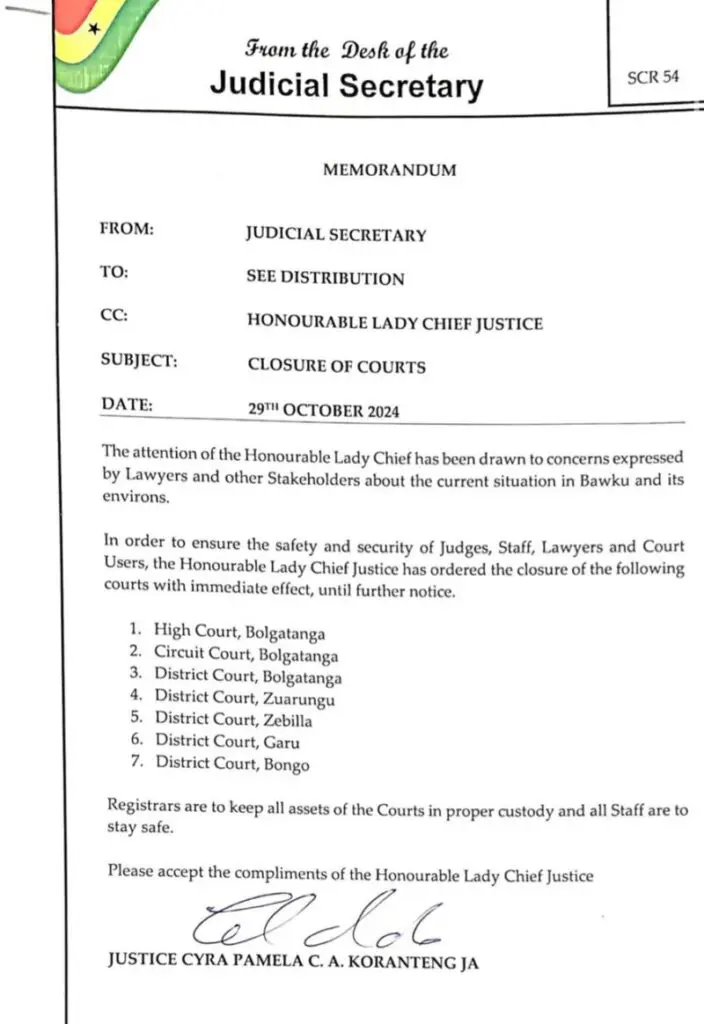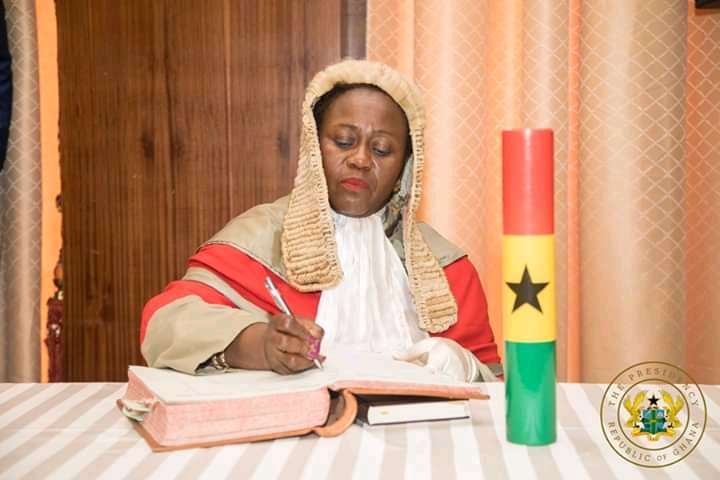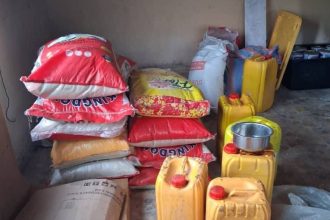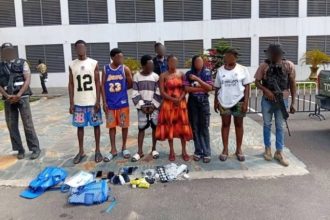The Chief Justice, Gertrude Sackey Torkornoo, has ordered the closure of seven courts in the Upper East Region due to the escalating Bawku conflict.
This directive aims to safeguard judges, court staff, lawyers, and members of the public who use these facilities.
The affected courts include the High Court, Bolgatanga; Circuit Court, Bolgatanga; District Court, Bolgatanga; District Court, Zuarungu; District Court, Zebilla; District Court, Garu; and District Court, Bongo.
In a statement issued by the Judicial Secretary on Tuesday, October 29, it said that “to ensure the safety and security of Judges, Staff, Lawyers and Court Users, the Honourable Lady Chief Justice has ordered the closure of the following courts with immediate effect, until further notice.”
The statement further calls for court registrars to secure all court assets and ensure they are properly safeguarded during the shutdown.
Additionally, all staff members are advised to remain cautious and prioritize their safety during this period.
The closure comes in the wake of renewed chieftaincy clashes, which have claimed 16 lives and left some residents injured.
READ ALSO: Ceasefire: Peace Council tells bloodthirsty Bawku warmongers
In response to the situation, the government has imposed a curfew in the area, citing Chief Alhaji Seidu Abagre’s presence as a significant threat to residents’ safety.
The curfew, which commenced on October 28, 2024, and lasts from 6 pm to 6 am, aims to restore peace and order in the area.
The decision was made after an emergency national security meeting, chaired by President Nana Addo Dankwa Akufo-Addo, due to significant disturbances affecting public peace and security in Bawku and its environs.
These disturbances have resulted in the loss of numerous lives, with a looming threat of escalation beyond Bawku.
The Bawku chieftaincy dispute dates back to 1931. It revolves around the occupation of the Bawku skin, which represents chiefly authority in the Bawku traditional area.
The conflict between the Kusasi and Mamprusi ethnic groups has been ongoing, with historical contestation and political interference fueling tensions.
In recent years, the conflict has been characterized by recurring waves of violent clashes, resulting in deaths, injuries, and property damage.
The surge of arms in Bawku has also contributed to the conflict’s escalation, with many residents feeling obliged to arm themselves for protection.
Read the full statement below;

















